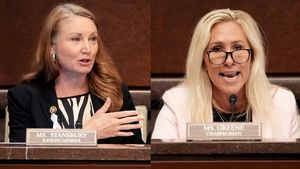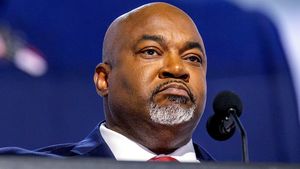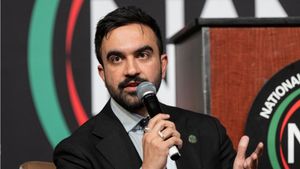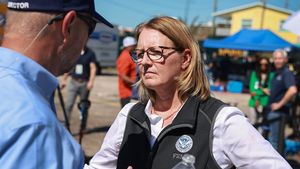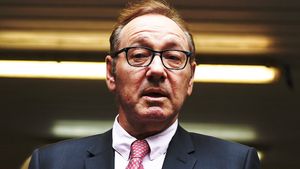Climate change is on track to transform the world. The careers and living spaces available to young people shift every day, yet very few of them are educated on the environment.
The New York Times reports that in more than 40 states, climate change is mentioned in middle school curriculum just once. Texas includes three bullet-points on the topic in their 27-page document of standards, and Florida does not mention the topic at all.
Despite state guidelines, Michael Padilla, a professor at Clemson University and former president of the National Science Teachers Association, believes that middle school is the ideal time to discuss climate change with students.
“Middle school is where these kids are starting to get their moral compass and to back that compass up with logic,” he told The Times. “So middle school is a classic opportunity to have more focus on climate change.”
Because there are no national standards surrounding education on climate change, the decision falls to states, or school districts and individual teachers. States usually update their guidelines every ten years. Florida's were last rewritten in 2008.
According to a survey from the National Center for Science Education, around half of middle school science teachers spend less than two hours on the subject each year or do not cover it at all. In contrast, 80 percent of parents believe it should be taught.
Students believe similarly, as they are already aware of climate change from what they see in the news or online, but do not fully understand what they read.
Michael Wysession, a professor of earth science at Washington University, explained: “Students everywhere know it’s a problem. The challenge is to keep them from getting depressed about it.”
Unfortunately, many of the teachers deciding on whether or not to discuss climate change never learned about the topic themselves. While some training programs have aimed to educate instructors, national support remains unavailable.
To expand instruction on climate change, education needs to go beyond climate science. To truly benefit, students must be prepared for the issues facing them, such as climate migration, extreme weather, and developing renewable energy sources.
Bertha Vazquez, a seventh grade science teacher in Miami, makes a point to teach her students not just about climate change, but what they should strive for to combat it.
She said: “What if the candlemakers had stopped the light bulb? We should be the leaders in solar and wind. I tell my students, ‘Don’t let the candlemakers stop the light bulb.’”
- Renewable Energy Will Overtake Coal by 2025 - Advocate Channel ›
- Why NYT Journalists Staged a Historic 24-Hour Strike - Advocate Channel ›
- How Climate Change is Impacting Tornadoes - Advocate Channel ›
- Here's Why Christmas Tree Prices Skyrocketed This Year - Advocate Channel ›
- Congress Pledges $1 Billion to Countries Impacted by Climate Change - Advocate Channel ›
- Climate Advocacy Group Vows to Stop Disruptive Protests - Advocate Channel ›
- The Ozone Will Be Repaired Within Decades, UN Report Finds - Advocate Channel ›











